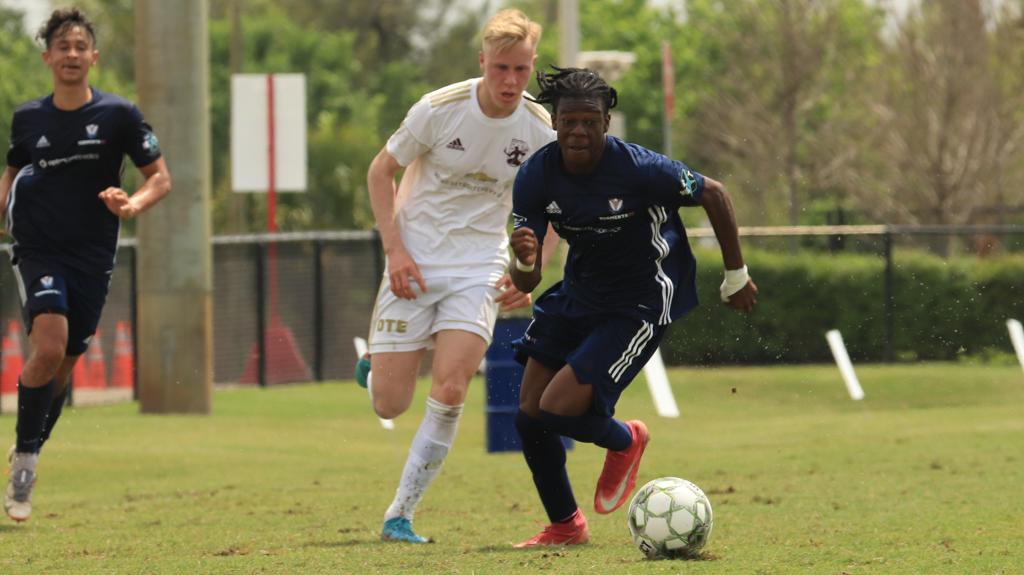Playing college soccer in the U.S. is a dream for many international athletes. The chance to study, train, and compete at a high level while living in a new country is exciting—but it also comes with challenges. One of the biggest obstacles international players face is the language barrier.
Whether you’re fluent in English or still learning, communication can impact your experience on the field, in the classroom, and in your daily life. In this blog, we’ll explore how language barriers affect international players in college soccer and offer strategies to overcome them and thrive.
Why Language Matters in College Soccer
Soccer is a universal language—but in college, communication goes beyond the game. From understanding your coach's instructions to participating in team meetings and succeeding in class, language plays a central role in your success.
Here’s where language challenges usually appear:
- Understanding tactical instructions during practice
- Responding to fast-paced conversations in games
- Talking with teammates off the field
- Following along in lectures and completing assignments
- Advocating for yourself with coaches or professors
Even players with good grammar may struggle with slang, speed of speech, or the stress of performing in a second language. It can be frustrating—but it’s also completely normal.
On-Field Challenges for International Players
1. Tactical Communication
If you miss key instructions from your coach, it can affect your positioning, game understanding, and performance. You might hesitate to ask questions, fearing that you’ll slow down the session or seem unprepared.
2. Team Chemistry and Confidence
If it’s hard to express yourself, it’s easy to feel disconnected. You might speak less during games, avoid social situations, or lose confidence—even if your skill level is high.
3. Leadership Opportunities
Players with strong personalities in their home country may hold back in the U.S. due to language limits. This can delay leadership development and make it harder to stand out as a team leader.
Academic Challenges
Most college soccer players also face full academic schedules. If English isn’t your first language, things like note-taking, essay writing, and participating in class discussions can be tough. And since academic performance affects eligibility, this can quickly become stressful.
Support is available—but it’s up to the student to ask for it. Understanding that asking for help is a strength, not a weakness, is key to succeeding in the classroom and maintaining eligibility to compete.
How to Overcome Language Barriers in College Soccer
1. Use Soccer as a Language Tool
Start by focusing on soccer vocabulary. Learn words and phrases your coach uses often—“switch,” “step,” “drop,” “man on,” “mark,” “press,” etc. Ask your teammates or assistant coaches to repeat things slowly or clarify key instructions. Most will be happy to help.
Don’t be afraid to talk during games. Use short phrases and simple words. Communication improves with use—even if it’s not perfect.
2. Build Relationships with Teammates
Spending time with teammates off the field helps you improve your English naturally. Join team meals, study groups, or casual hangouts. Don’t worry about your grammar—focus on connection.
Building friendships boosts your confidence, improves your communication, and helps you feel part of the team, even if you’re far from home.
3. Practice Listening and Speaking Every Day
Watch soccer games in English with English commentary. Listen to podcasts or YouTube interviews with coaches or players. Try to repeat sentences and learn the rhythm of the language.
Apps like Duolingo, BBC Learning English, or HelloTalk can also help you practice conversation and vocabulary on your own time.
4. Ask for Support in Class
Many colleges offer tutoring, ESL (English as a Second Language) support, or academic advisors. Use these services early. Also, don’t hesitate to speak with your professors if you’re having difficulty understanding course materials—they appreciate your effort and will usually help you.
Managing the academic side is just as important as your soccer career. If you want to make sure you’re fully prepared, check out How to Prepare for Your First Year as a College Soccer Player.
Mental Health and the Language Barrier
Feeling misunderstood or isolated can affect your mental health. It’s normal to feel overwhelmed at times, especially during the first months. You might miss home, struggle with confidence, or feel frustrated that you can’t express yourself the way you want.
The key is to stay patient with yourself. Progress takes time. Lean on teammates, coaches, counselors, and support systems. You're not alone—and you're stronger than you think.
For more help navigating the mental side of your journey, read The Role of Mental Health in College Soccer.
Final Thoughts
Language barriers are real, but they are not permanent. Thousands of international players succeed in U.S. college soccer every year—not because their English is perfect, but because they show effort, patience, and a willingness to grow.
If you’re an international player, your decision to move abroad and compete is already a sign of strength. Use every opportunity—on and off the field—to improve your communication, build connections, and stay focused on your goals. Your voice matters, even if it takes time to find it in a new language.
.svg)










